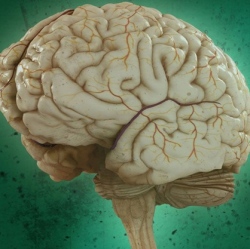
Past research has examined the impact of sleep duration on cognitive functions in older adults. Though faster brain ventricle enlargement is a marker for cognitive decline and the development of neurodegenerative diseases such as Alzheimer’s, the effects of sleep on this marker have never been measured.
The Duke-NUS study examined the data of 66 older Chinese adults, from the Singapore-Longitudinal Aging Brain Study. Participants underwent structural MRI brain scans measuring brain volume and neuropsychological assessments testing cognitive function every two years. Additionally, their sleep duration was recorded through a questionnaire. Those who slept fewer hours showed evidence of faster ventricle enlargement and decline in cognitive performance.
"Our findings relate short sleep to a marker of brain aging," said Dr June Lo, the lead author and a Duke-NUS Research Fellow. "Work done elsewhere suggests that seven hours a day for adults seems to be the sweet spot for optimal performance on computer based cognitive tests. In coming years we hope to determine what’s good for cardio-metabolic and long term brain health too," added Professor Michael Chee, senior author and Director of the Centre for Cognitive Neuroscience at Duke-NUS.
